Bloody Sunday
But first, a bit of history . . .
Here's the English-owned land in Ireland before the reign of Elizabeth I.
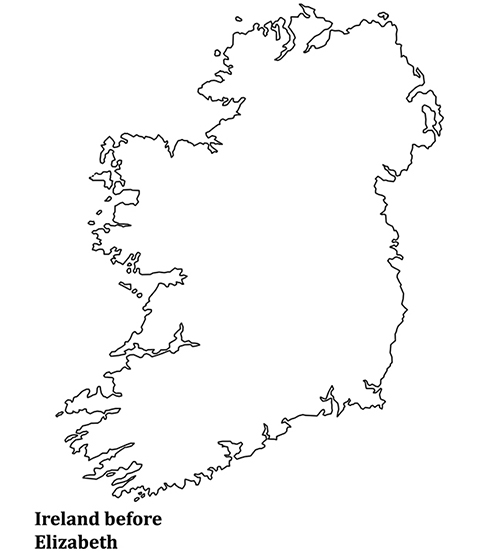
gave plantations to English nobles and those loyal to their house.
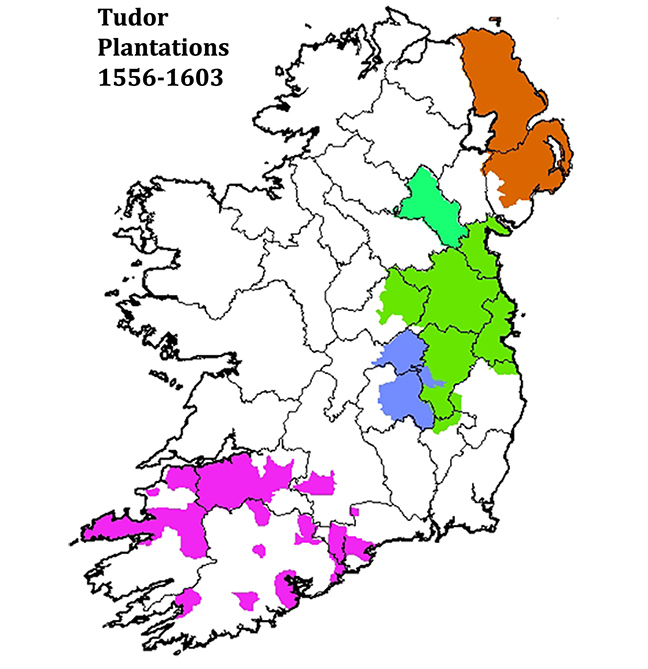
transplanted to the counties in the north of Ireland.
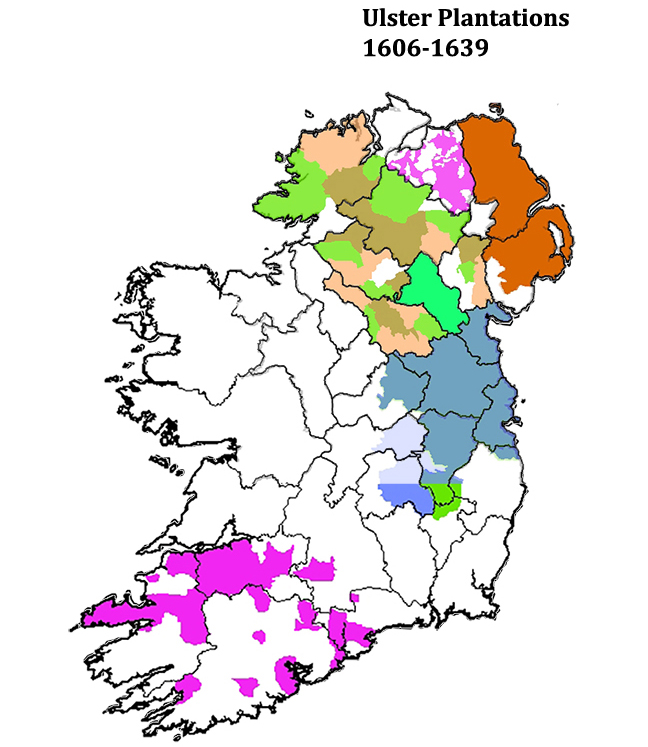
he confiscated most of the remaining land that was still in Irish hands.
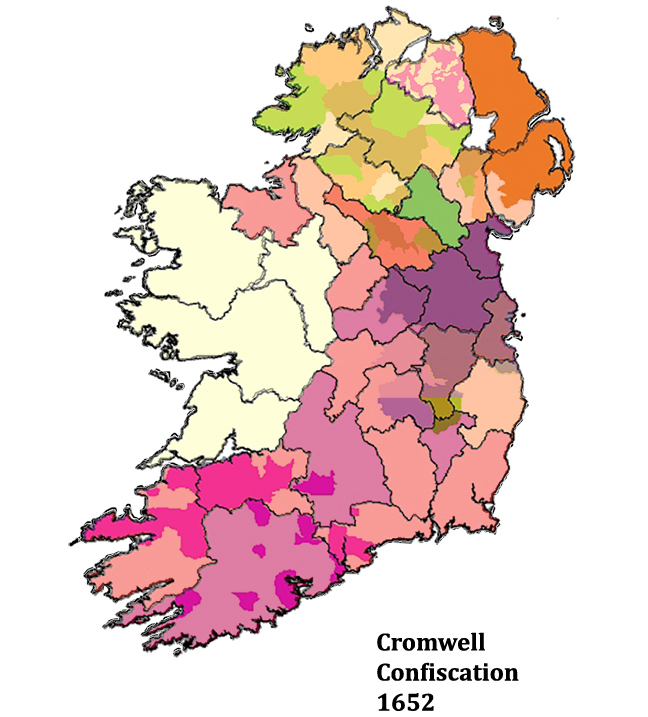
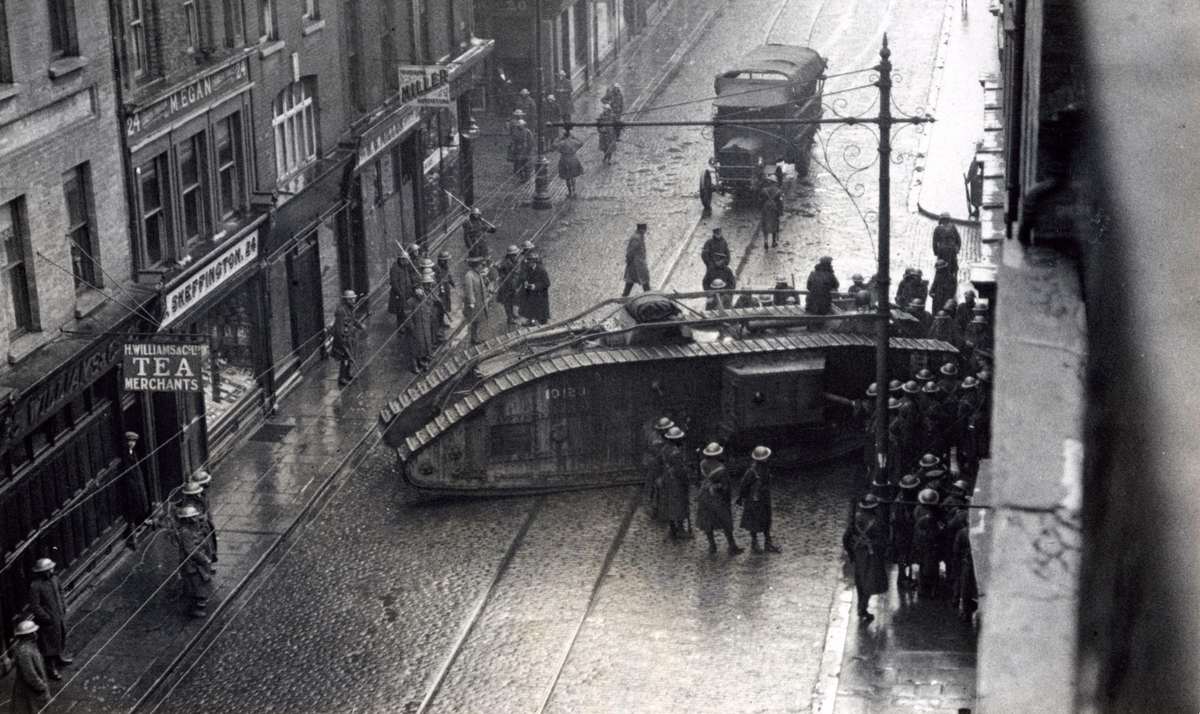
An English tank patrols the street during an uprising in Dublin, in 1921.
Bloody Sunday, or the Bogside Massacre
In response to escalating levels of violence across Northern Ireland, in August 1971 Great Britain introduced indefinite detention without trial, or, as they called it, internment. On 30 January 1972 in the Bogside area of Derry—one of the few neighborhoods where Catholics could live in that city—the Northern Ireland Civil Rights Association (NICRA) organized a protest march against this Internment Act.
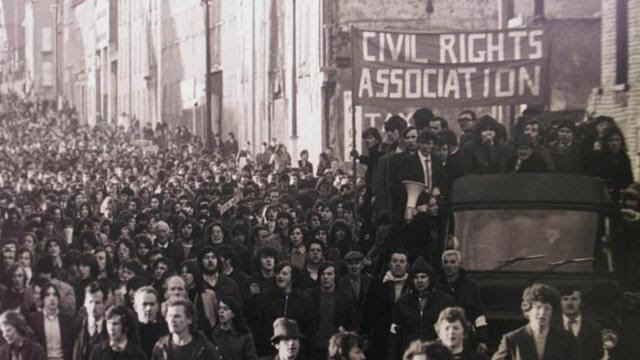
The march down the Bogside
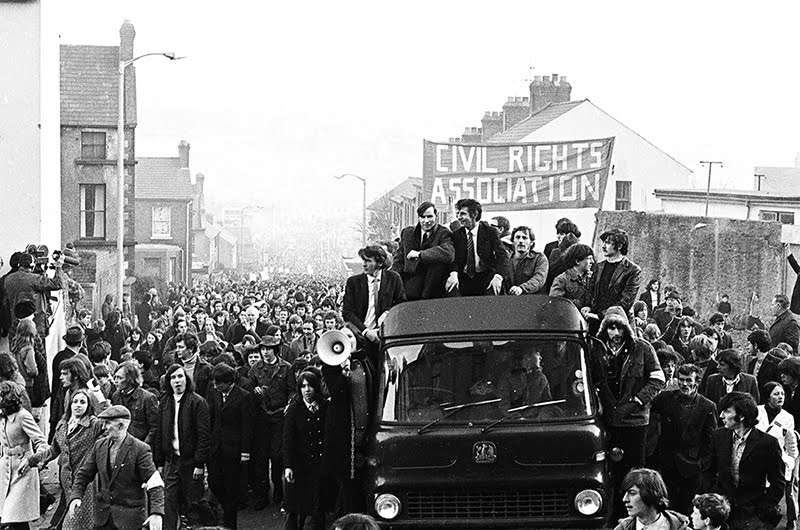
The marchers on Westland Street
British soldiers, members of the 1st Battalion, Parachute Regiment ("Paras") shot 26 unarmed civilians during the protest march. This was the same regiment who had shot and killed nine civilians in Belfast just five months earlier (August 1971). That incident became known as the "Ballymurphy Massacre." Several of the Derry marchers responded to their presence by throwing rocks.
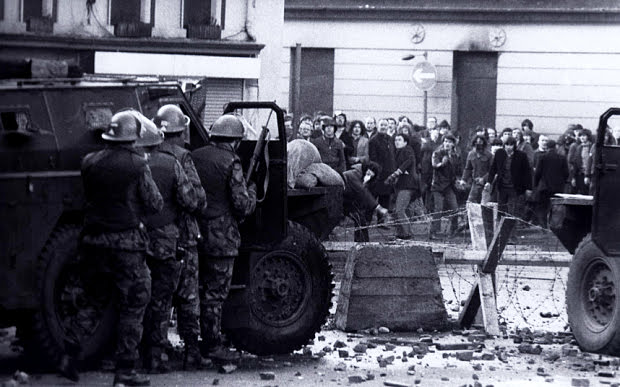
Paras versus rock-throwers
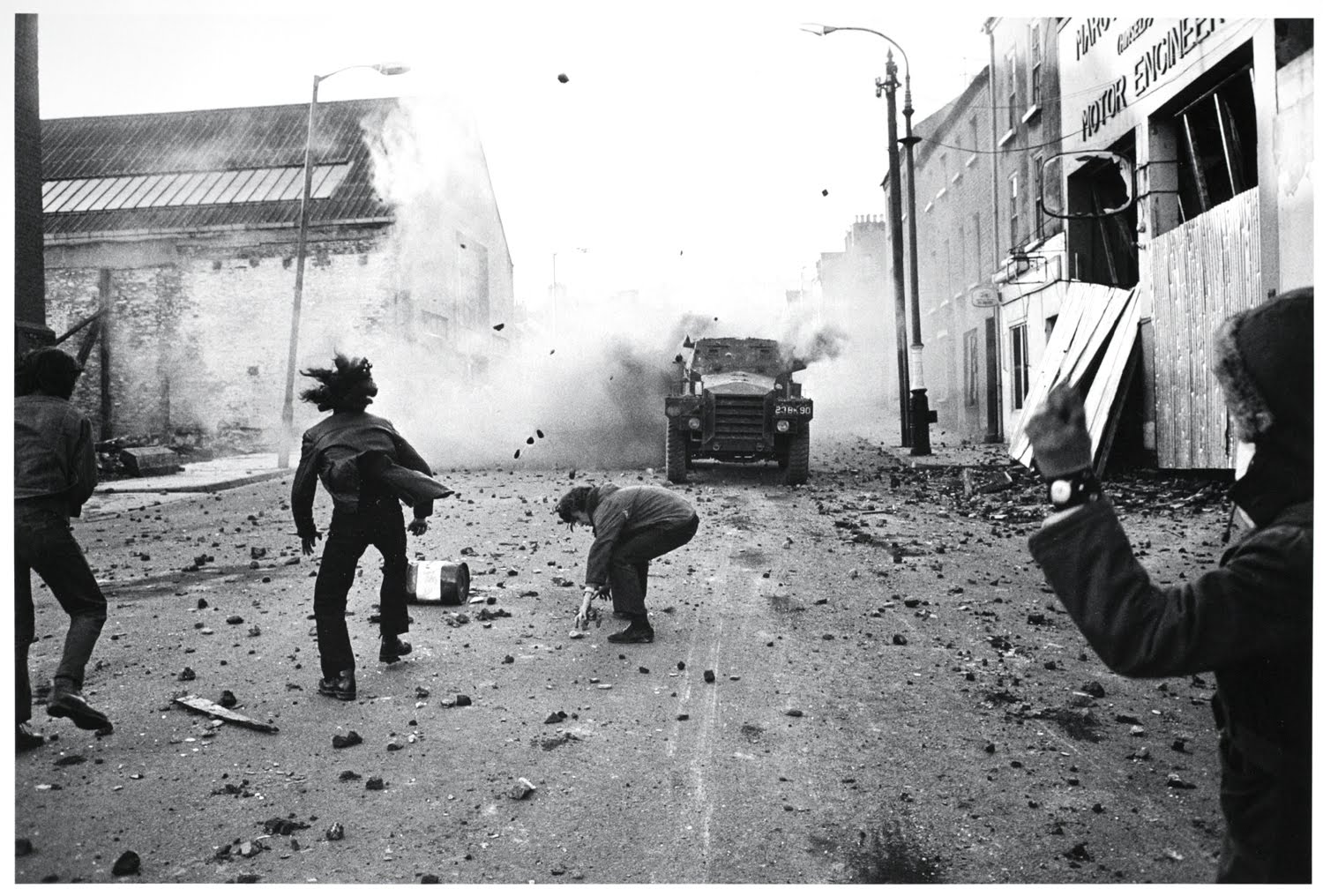
Rocks against armored Saracens (armored personnel carriers)
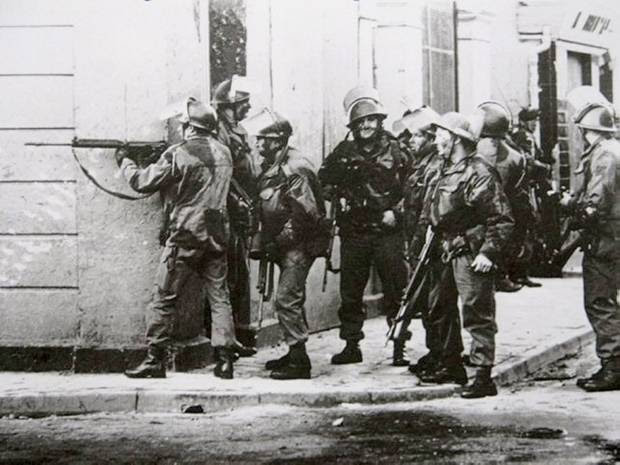
Paras firing
Fourteen people died: thirteen were killed outright, while the death of another man four months later was attributed to his injuries.
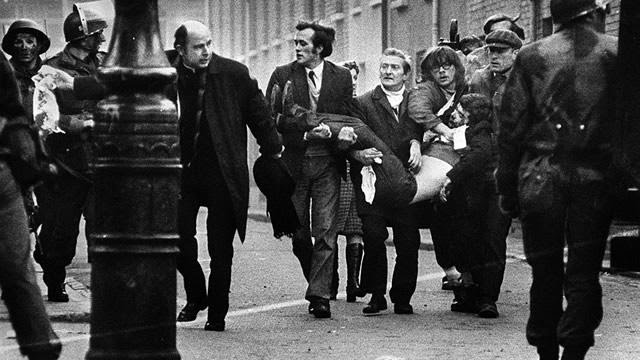
A wounded protester is removed under fire
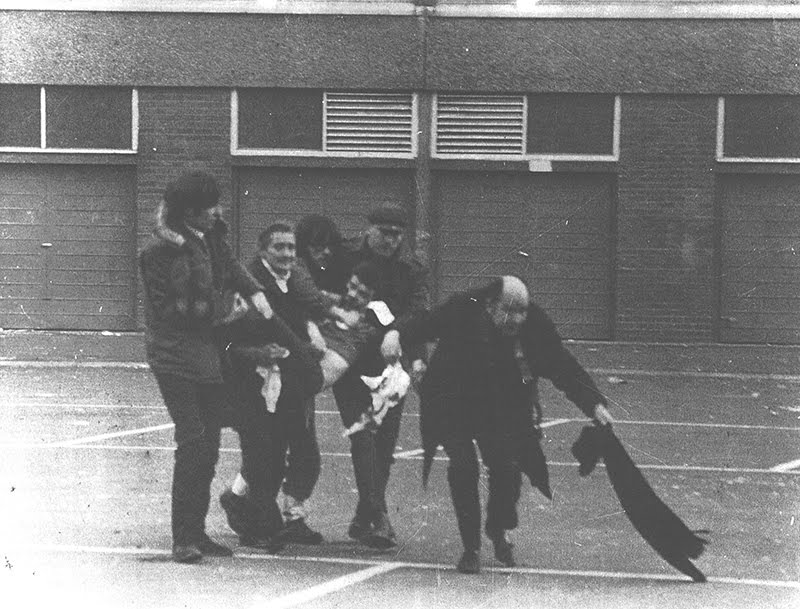
Another wounded protester is removed under fire
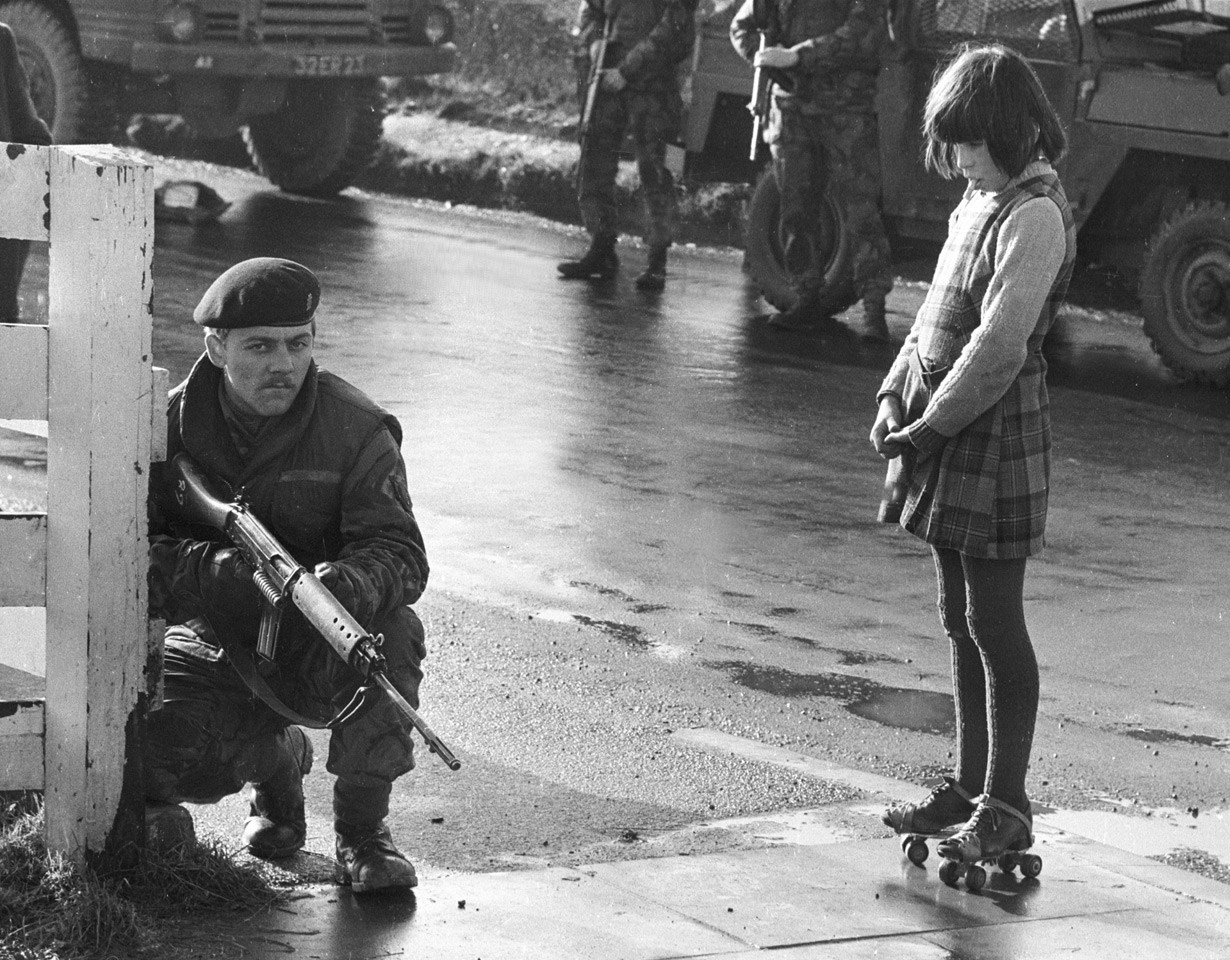
A young girl stands next to a Para who is covering the street.
Many of the victims were shot while fleeing from the soldiers; some were shot while trying to help the wounded. Other protesters were injured by rubber bullets or batons, and two were run down by army vehicles. The British Army labelled the victims "gunmen and bombers." They claimed their soldiers had met a "fusillade of fire," but no soldier or vehicle had been hit, and no bullet casings were found.
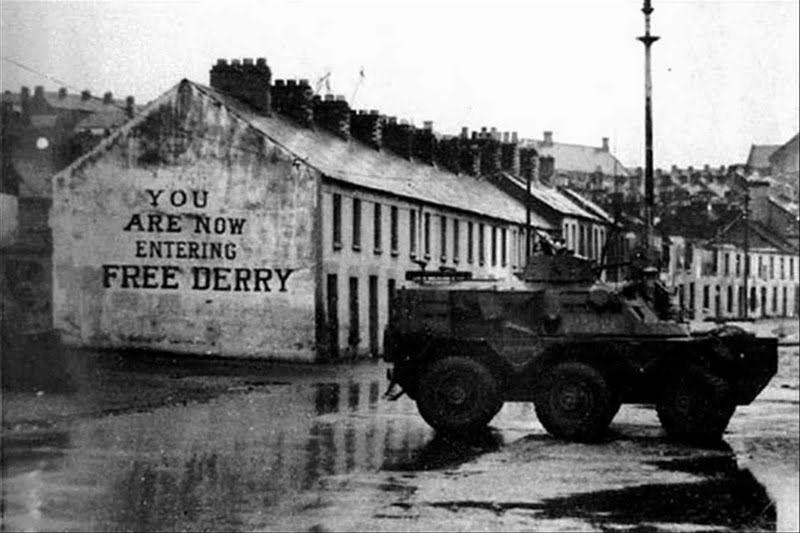
Saracen at Free Derry Corner
A common funeral was held for the thirteen victims the following week.
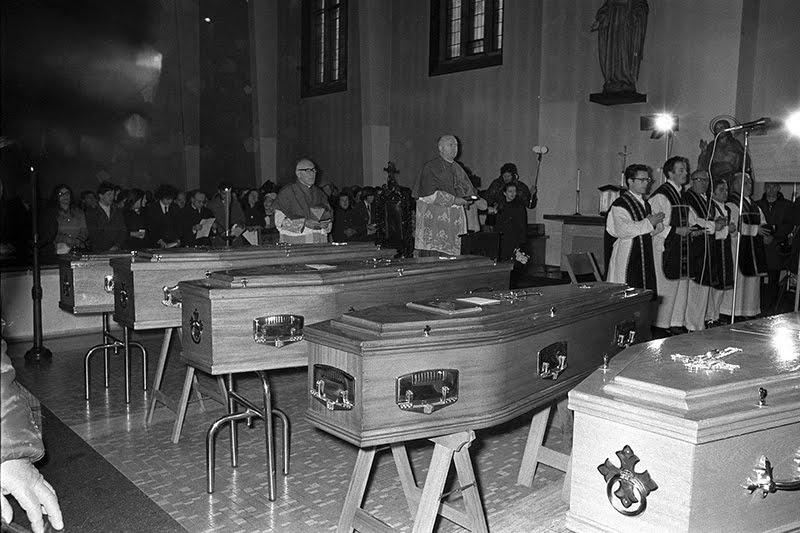
The coffins inside the church
Six months after Bloody Sunday, Colonel Derek Wilford, the Commanding Officer of the Paras in Derry, was knighted by the Queen.
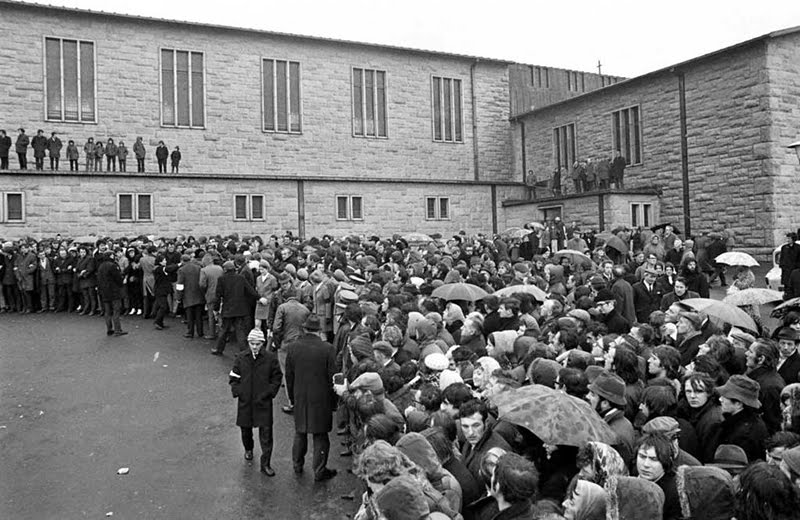
Thousands waiting outside the church
The official British investigation into the incident, the Widgery Tribunal, exonerated the British Army and placed the blame for the tragedy on NICRA for organizing the march.
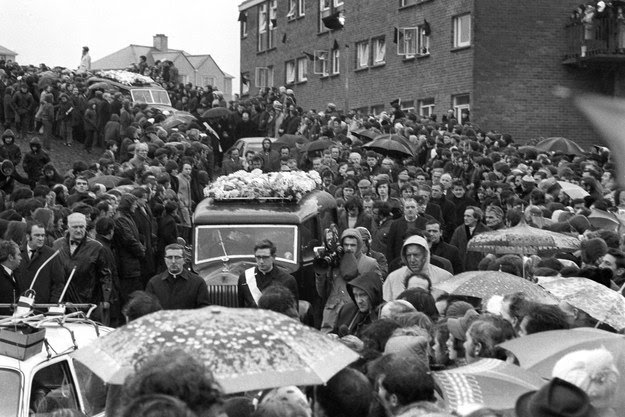
The funeral procession through the Bogside
It claimed there was a "strong suspicion" that some of those killed "had been firing weapons or handling bombs," a judgment that ran contrary to all available evidence.
All knew this was a whitewash. In 1973, the Coroner who examined the bodies of the victims, Hubert O'Neill, called the killings "sheer, unadulterated murder."
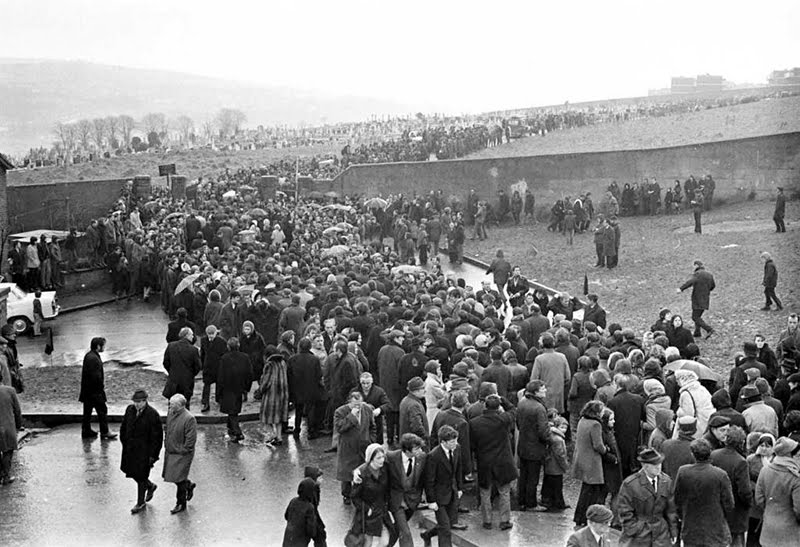
Entering the cemetery
It was not until 1998 that the British government, after decades of pressure from families of the victims, survivors of the incident, and the Irish government, conducted another investigation, the Saville Inquiry. The Inquiry completed its report after twelve years, and David Cameron, the British Prime Minister summarized it thus: "what happened on Bloody Sunday was both unjustified and unjustifiable."
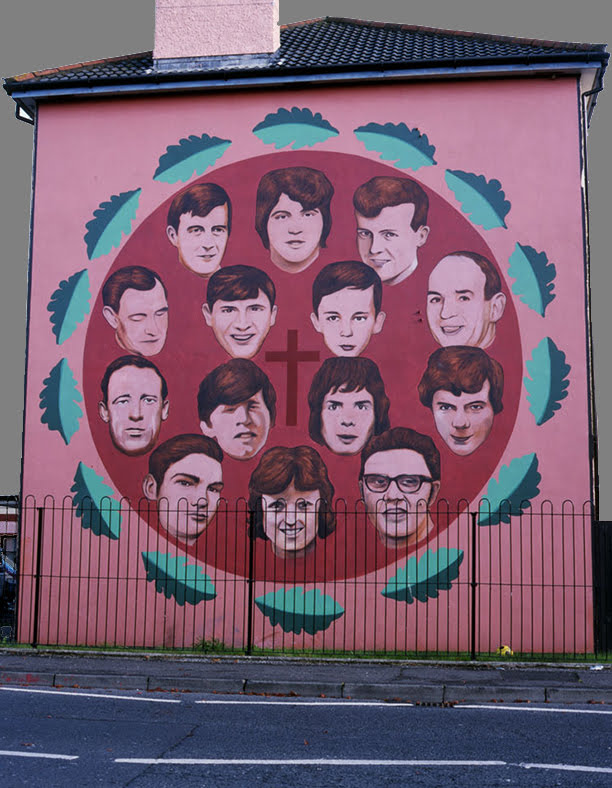
Bogside mural commemorating the dead
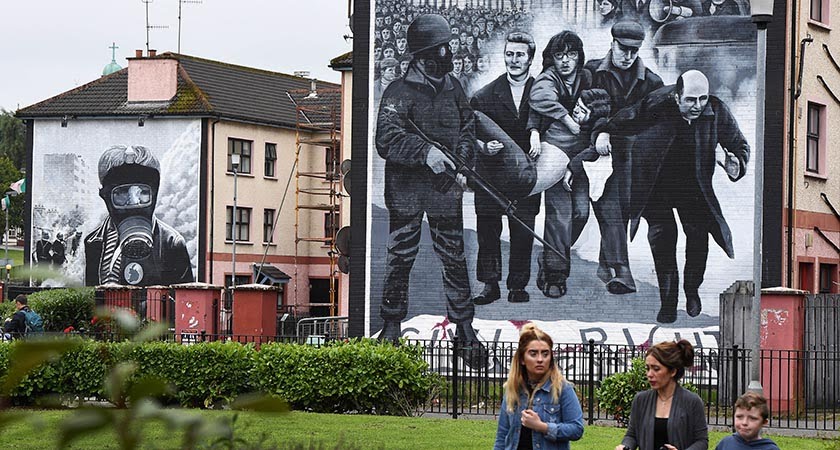
The North Remembers - more Bogside murals
To date, the only person arrested is one former Lance Corporal, in November of 2015. He was released and has not yet been charged with any crime.
Bloody Sunday in 60 Seconds
"Easter 1916"
William Butler Yeats
Too long a sacrifice
Can make a stone of the heart
Oh when may it suffice?
"Sunday, Bloody Sunday"
U2
|
I can't believe the news today Oh, I can't close my eyes and make it go away How long, how long must we sing this song? How long? How long? 'Cause tonight We can be as one Tonight Broken bottles under children's feet Bodies strewn across the dead-end street But I won't heed the battle call It puts my back up, puts my back up against the wall Sunday, Bloody Sunday Sunday, Bloody Sunday Sunday, Bloody Sunday Sunday, Bloody Sunday Alright, let's go And the battle's just begun There's many lost, but tell me who has won? The trenches dug within our hearts And mothers, children, brothers, sisters torn apart Sunday, Bloody Sunday Sunday, Bloody Sunday |
How long, how long must we sing this song? How long? How long? 'Cause tonight we can be as one, tonight Tonight, tonight (Sunday, Bloody Sunday) Tonight, tonight (Sunday, Bloody Sunday) Alright, let's go Wipe the tears from your eyes Wipe your tears away I'll wipe your tears away I'll wipe your tears away (Sunday, Bloody Sunday) I'll wipe your bloodshot eyes (Sunday, Bloody Sunday) Sunday, Bloody Sunday Sunday, Bloody Sunday Sunday, Bloody Sunday Sunday, Bloody Sunday And it's true we are immune When fact is fiction and TV reality And today the millions cry (Sunday, Bloody Sunday) We eat and drink while tomorrow they die (Sunday, Bloody Sunday) The real battle just begun (Sunday, Bloody Sunday) To claim the victory Jesus won (Sunday, Bloody Sunday) On Sunday, Bloody Sunday, yeah Sunday, Bloody Sunday |